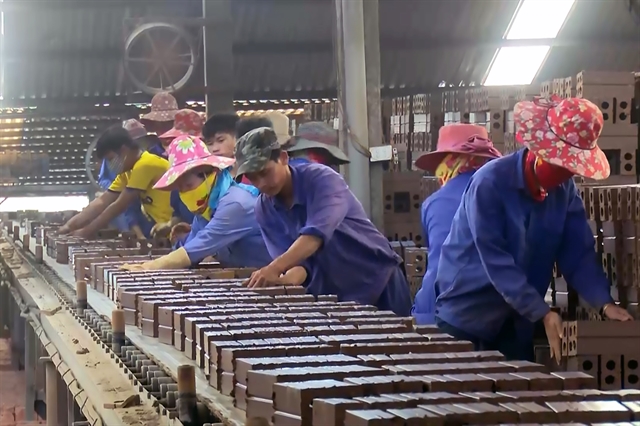Access to resources was vital for the development of of small- and medium-sized enterprises (SMEs), according to the Ministry of Planning and Investment.

Access to resources was vital for the development of of small- and medium-sized enterprises (SMEs), according to the Ministry of Planning and Investment.
The Law on Supporting SMEs came into force more than two years ago, but SMEs were still struggling to access credit, land and support programmes.
According to Nguyen Van Than, chairman of the Viet Nam Association of SMEs, problems remained in the implementation of the law.
Than pointed out that the resources available to implement the law remained limited, adding that many localities had not allocated resources to support SMEs.
He said the number of SMEs able to access bank credit and support funds was modest.
High logistics costs were affecting SMEs’ market expansion as well as lack of competitiveness, plus complicated administrative procedures and slow issuance of preferential policies had made it difficult for them to tackle these difficulties, Than said.
Mac Quoc Anh, deputy chairman of Ha Noi's Association of SMEs, said there were gaps between policies and enforcement as well as the real demands of SMEs.
Quoc Anh said that SMEs still faced problems such as complicated administrative procedures, inconsistent business requirements and vague regulations.
The biggest problem for SMEs was a lack of capital which resulted in small-scale operations and the lack of a long-term strategy, he said, adding that they did not have money to invest in advanced technologies.
The majority of SMEs were using outdated technologies and renovation among SMEs remained slow, he said.
Deputy Minister of Planning and Investment Vu Dai Thang said that support for SMEs mainly came from local authorities.
As of the end of 2019, 50 out of 63 provinces and cities had developed plans and projects to allocate resources to support SMEs, the ministry’s statistics showed. However, localities were still facing problems bringing support policies into real life or identifying areas of strength.
The ministry said that policies on corporate income tax, non-agricultural land fees and incentives for SME investments must be more specific. In addition, policies must encourage business households to transform into enterprises.
Priority should be given to allocating resources to support SMEs, the ministry said, adding that a programme to support SMEs and start-up firms from 2021-25 period would be proposed to the Prime Minister soon for approval.
There were around 760,000 enterprises in Viet Nam as of the end of 2019, around 98 per cent of which were SMEs. — VNS





